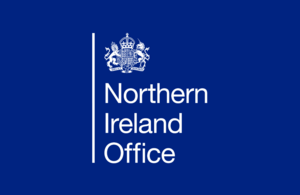New Bill to devolve Corporation Tax in Northern Ireland
As part of the Stormont House Agreement, this Bill should allow Northern Ireland to set its own rate of corporation tax from April 2017.

The Government today published the Corporation Tax (Northern Ireland) Bill, which provides for the devolution of tax powers to the Assembly and should allow Northern Ireland to set its own rate of corporation tax from April 2017.
The current rate paid by businesses in Northern Ireland is 21%, compared to 12.5% in the Republic of Ireland. If the rate was lowered, around 34,000 businesses in Northern Ireland would stand to benefit, including 26,500 SMEs.
Theresa Villiers, Secretary of State for Northern Ireland, said:
I am delighted the Government has introduced this important Bill today, as part of its implementation of the Stormont House Agreement.
There is strong support for this change across all 5 of the parties in the Northern Ireland Executive and the business community who believe it would provide a major incentive for domestic businesses to invest further in Northern Ireland and significantly increase foreign direct investment. Given the land border shared with a lower corporation tax jurisdiction, this measure has the potential to create thousands of new jobs and stimulate crucial growth in Northern Ireland’s private sector, leading to a stronger, re-balanced economy.
In the light of an economy that for many years has been over-dependent on the public sector, allowing the Assembly to set its own rate for corporation tax offers the prospect of a transformative change in Northern Ireland. The Bill is subject to the important conditions contained in the Stormont House Agreement, reached with the NI Executive parties in December after 11 weeks of negotiations. That Agreement involves compromise on all sides, including from the UK and Irish Governments. But it is fair and balanced and provides the opportunity to build a brighter future for Northern Ireland.
George Osborne, The Chancellor of the Exchequer, said:
As I’ve said over a number of years, there is a strong case for devolving a corporation tax rate-setting power to Northern Ireland. Today we recognise this by publishing the law to let this happen. This will give the Northern Ireland Executive greater power to rebalance the economy towards a stronger private sector, boosting employment and growth.
We want to work with the NI Executive to ensure that Northern Ireland will attract investment and become more competitive, boosting the entire UK economy.
Danny Alexander, The Chief Secretary to the Treasury said:
This Government is committed to devolving powers across the UK where there is a strong argument for doing so, from giving Scotland control over income tax to today’s corporation tax announcement for Northern Ireland.
Within the UK, the case for devolving corporation tax setting powers to Northern Ireland is unique. It shares a border with Ireland, where a far lower rate exists, and the economy faces other special challenges. However, this agreement is conditional on the Northern Ireland Executive continuing to work to balance Northern Ireland’s budget, to ensure that people across the UK can benefit from a stronger economy and fairer society under this Government.
Progress of the Bill is dependent on the Executive Parties delivering on their commitments in the Stormont House Agreement, including legislating for changes to the welfare system; agreeing a credible 2015-16 budget, and taking the necessary steps to put the Executive’s finances on a stable long-term footing.
Following its introduction today, the Government is aiming for the Bill to reach its final stages in March and achieve Royal Assent before May’s General Election.
Short guide to the Bill
The design of the NI CT tax regime reflects the Government’s overarching principles:
- It must be attractive to businesses, including only having proportionate administrative burdens
- It encourages genuine economic activity in Northern Ireland
- Costs for the NI Executive must be proportionate and kept to a minimum
- It satisfies EU State aid rules
The Assembly will have the power to set the corporation tax rate over most trading profits in a new Northern Ireland corporation tax regime. It does not include non-trading profits such as income from property.
This will enable Northern Ireland, if the parties agree it is appropriate, to set a different rate of corporation tax from the rest of the UK. Power over the corporation tax base, including reliefs and allowances, will remain with the UK Parliament.
The regime has been carefully designed to enable the Northern Ireland Executive and Assembly to encourage genuine investment that will create jobs and growth, while minimising opportunities for avoidance and profit-shifting.
The legislation includes a special regime for smaller companies to avoid disproportionate administrative burdens and uses existing international rules for larger companies to avoid unnecessary complexity, while ensuring robust profit allocation.
The Bill also contains rules on the treatment of capital allowances and tax reliefs, including in the creatives sector and in research and development, as well as on the treatment of profits and losses in Northern Ireland and the rest of the UK.
In keeping with the Government’s design principles, profits from some trades - including lending and investing activities (including those of Treasury companies); asset management; finance leasing; long-term insurance (including life insurance) and reinsurance activities of both general and life insurance - will remain in the UK main regime. The UK’s oil and gas tax regime will also not be part of the Northern Ireland regime.